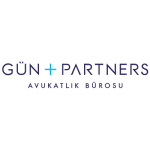It is the common goal to get through the pandemic, which endangers the health of all of mankind, and for that, all have been watching for a vaccine and treatment to overcome the pandemic as soon as possible. In a considerably short time, scientists have managed to go beyond the known and multiple COVID-19 vaccines were developed.
At this point, the equal distribution of vaccines emerged as a vital problem that hindered global salvation from this pandemic. While some of the developed countries had the chance to store vaccines to meet multiple dosages, hundreds of less developed or developing countries have not been able to access vaccines at all. According to Our World in Data, 23.4% of the world population has received at least one dose of the COVID-19 vaccine, however, only 0.9% of people in low-income countries had received at least one dose as of June 30 2021.
While the reasons for this undesired situation were being discussed, IP rights especially on vaccines, and whether these rights were the cause of the injustice in access to the vaccine became a very important topic of discussion. It can be argued that IP rights are just the ‘scapegoat’ of vaccine inequity so far.
Removing barriers
With their communication submitted to the Council for Trade-Related Aspects of Intellectual Property Rights of the World Trade Organization (WTO) on October 2 2020, India and South Africa proposed that members of the WTO should “work together to ensure that intellectual property rights such as patents, industrial designs, copyright and protection of undisclosed information do not create barriers to the timely access to affordable medical products including vaccines and medicines or to scaling-up of research, development, manufacturing and supply of medical products essential to combat COVID-19”.
The communication of India and South Africa, which did not have lots of supporters, including the US back in October 2020, has gained popularity with the changing position of the Biden administration. Katherine Tai, US trade representative, announced in an official statement dated May 5 2021, that the Biden administration supports waiving IP protections for COVID-19 vaccines.
The WTO Agreement on Trade-Related Aspects of Intellectual Property Rights (TRIPS) is the most comprehensive multilateral agreement on intellectual property. Simply, TRIPS aims to reduce barriers and irregularities in international trade, and to ensure that the procedures and measures regarding the implementation of IP rights do not constitute an obstacle to trade, determines the minimum standards to be followed by the member states. In this context, TRIPS member countries undertake to respect and protect IP rights, including patent rights, among other obligations.
If a TRIPS signatory country does not protect IP rights in its own country and for example uses or makes use of patented technologies without the consent of the right owner, it may face an accusation of breaching its obligations arising from TRIPS. In the event of such a temporary waiver being decided, members will not be able to subsequently claim violations of the TRIPS obligations by other countries that temporarily waive intellectual protection rights.
Procedural challenges
On June 9 2021, the WTO TRIPS Council agreed to begin text-based negotiations for a patent waiver on coronavirus vaccines and treatments. The European Parliament suggested that the European Commission starts negotiations in the WTO on a temporary waiver on IP rights on COVID-19 vaccines and other medical products. As can be seen, the IP right waiver on COVID-19 is considered to be a milestone to enhance global access to affordable COVID-19 vaccines. However, it is highly controversial whether this alleged solution addresses the vaccine inequity problem.
First and foremost, the COVID-19 virus continues to mutate very rapidly, and it is a mystery how much protection these vaccines provide or will provide against which mutations in long run. Although scientists have taken a big step in finding vaccines, the need for science and innovation continues. Considering all, promoting science and innovation in this period, or at least not breaking the existing incentives disproportionately, is very important for a successful policy in the long run. Thus, intellectual and industrial rights holders should not be discouraged, without making sure that the IP right waiver is indeed the ultimate solution to the vaccine inequity.
It is a known fact that vaccine production is a quite complex process that embeds know-how, trade secrets, and the special training of technical people. In this respect, waiving the patent rights on COVID-19 vaccines, will not only harm innovation incentive but also a system where the patent holders have ripped their earned rights involuntarily, will fall short to provide all essential intelligence required for manufacturing of the COVID-19 vaccines.
To address the issue correctly it should be borne in mind that, one of the major problems regarding vaccine shortage and inequity in access to vaccine allegedly stems from the shortage of raw materials, production capacity constraints, and the extremely complex nature of the production of drugs. Even a typical vaccine manufacturing plant uses approximately 9,000 different materials sourced from some 300 suppliers across 30 different countries, according to figures from the International Federation of Pharmaceutical Manufacturers and Associations. Besides raw material shortage, export prohibition and restrictions are still addressed to be a major problem today. In this respect, it is argued that waiver of the patent rights will not yield more COVID-19 vaccine supply in 2021, considering that constraints are physical rather than legal.
As for patent rights, the scope of the waiver is also highly controversial. Indeed, although COVID-19 related patent applications have been filed they are not published yet since the publication of the application only takes place after 18 months. As for the current patents, the scope of a potential waiver still seems to be problematic. Indeed, the waiver will not be limited to the rights related to COVID-19. The mRNA technology used in the BioNTech/Pfizer vaccine is protected by patents that have already been granted, and these technologies also have useful applications, including in the treatment of cancer. When patents on vaccines are suspended, such patents will go into the pot.
Another point raised is the number of patent rights in one single product. There are more than one patent right on a product and this will be a considerable problem for determining the patents protecting the product and which of them will be waived.
Furthermore, the probability of a patent owner refraining from granting a license seemed to be quite low, and in any case of the legal instruments to overcome this hurdle are included in both national law and Articles 30, 31, and 31bis of TRIPS.
While TRIPS Article 30 regulates the general exemption provision to the patent right, the exemption foreseeing the use of the invention by a third party or government without the consent of the patent owner is regulated under Article 31 of TRIPS. TRIPS Article 31bis, on the other hand, paves the way for the compulsory license application foreseen for the internal market need to be issued to send to the countries in need.
Looking ahead
Considering all, patent protection is not the main obstacle to access the vaccine. If all patents were abolished, would injustice in access to the vaccine be eliminated? The answer seems not affirmative. It will be much more effective for the patent owners to cooperate and to provide each other with the necessary licenses within the framework of contractual relation. In particular, international alliances such as COVAX should be supported, the rapid transfer of existing vaccine stocks should be facilitated, and new international agreements should be concluded if necessary.
Selin Sinem Erciyas
Partner, Gün + Partners
Zeynep Çağla Üstün
Senior associate, Gün + Partners













